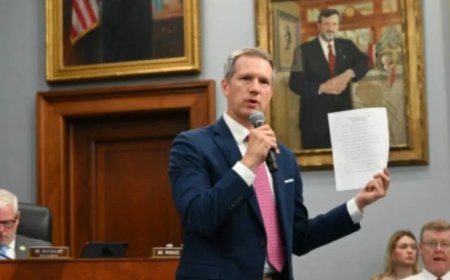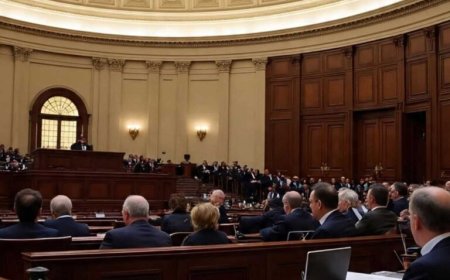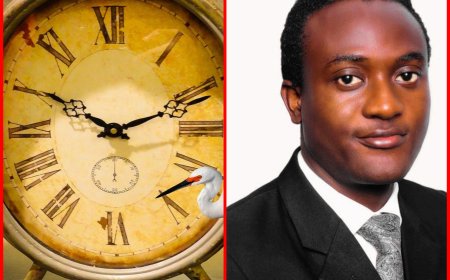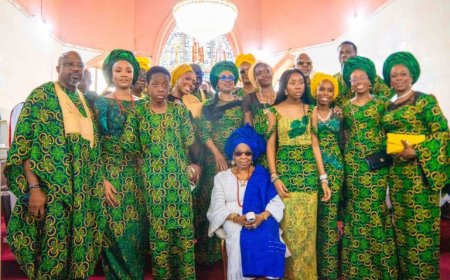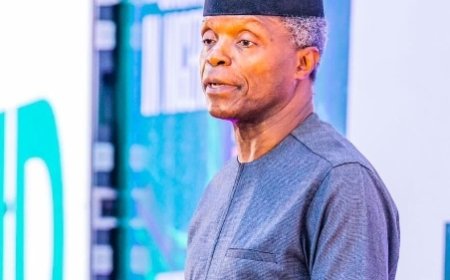Pope Leo XIV Attracts Nods, Criticisms Over Peace Message on Middle East
'If We Insist the Lion and the Lamb Lie Down Together Now, We Shall Continually Need to Replace the Lamb,' Says J Daryl Charles, in response to Pope Leo XIV's appeal to players in the Middle East to eschew arrogance and revenge.
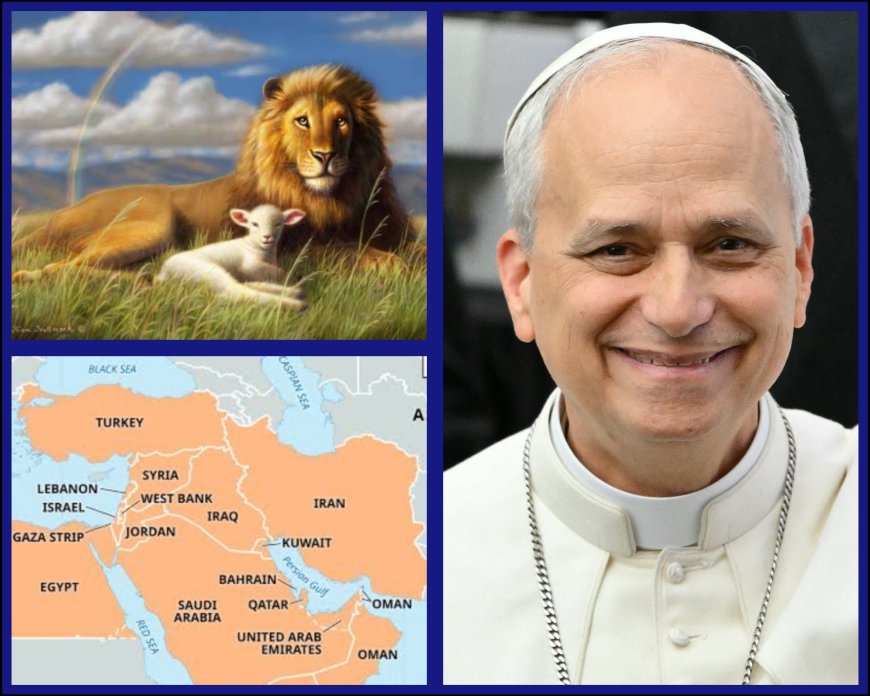
By: Olufemi Orunsola
As Pope Leo XIV continues his public catechesis and global messages of peace with special focused appeal to players in the Middle East to eschew arrogance and revenge, the religious leader has attracted both nods and nays from different quarters.
OPEN TELEVISION NAIJA (OTN) News reports that while the global religious leader has won the nods of many people across the world for his choice of propagating the gospel of eschewing arrogance and revenge by the various Middle East players.
A senior fellow at the Center for Religion, Culture & Democracy who is also Co-Author of Christian Just War, J. Daryl Charles has lead those criticizing Pope Leo for his public messages of peace in the Middle East, saying, 'If We Insist the Lion and the Lamb Lie Down Together Now, We Shall Continually Need to Replace the Lamb.'
OTN News recalls that in a recent address by the global religious leader,, Pope Leo made an urgent call for peace amid the wars affecting Israel, Palestine, Iran, and Syria, urging all sides to reject “arrogance and revenge” but instead pursue “dialogue, diplomacy, and peace.”
The Pope, who envisioned a world where peace reigns among nations of the world had quoted the biblical book of Isaiah 2:4, sues for a future where “nation will not lift up the sword against nation, neither shall they learn war anymore.”
OTN News further observes that the Pope's message of peace resonated with many across the globe, winning nods from many globally recognised humanitarian organizations, Catholic relief groups, as well as ordinary believers, many of whom have described the Pope’s words as a timely and courageous plea against the rising tide of violence, especially in the Middle East.
The Pope's appeal and approach were perceived as a consistent stand in sync with the role of the Church as amoral witness against bloodshed in the world.
However, some Christian ethicists and political observers have taken objections to the Pope's position arguing that Pope Leo’s vision risks obscuring the harsh geopolitical realities of the present—especially in relation to Iran’s posture toward Israel.
One of the most vocal critics is J. Daryl Charles, a senior fellow at the Center for Religion, Culture & Democracy and co-editor of Just War and Christian Traditions.
Charles, in a July 17 article, .has respectfully critiqued the Pope’s message, stating that while it is spiritually uplifting, it may offer “half-truths” when applied to international conflict.
“Pope Leo’s call to reject revenge is admirable,” Charles wrote, “but in the face of regimes that deny a nation’s right to exist, dialogue alone may become appeasement.”
Pope Leo’s call to reject revenge is admirable,” Charles wrote, “but in the face of regimes that deny a nation’s right to exist, dialogue alone may become appeasement.”
Making a reference to the long-standing hostility of Iran’s government toward Israel, Charles questioned how diplomacy can succeed when one party views the destruction of the other as a moral goal.
He further pointed to the Christian Just War tradition—embedded in the Catholic Catechism (nos. 2304–2312, which, Accord to him, permits the use of force under strict moral conditions such as legitimate defense, proportionality, and the protection of the innocent.
“The Church teaches that peace is the work of justice, not simply the absence of war,” Charles noted. “And when all peaceful efforts fail, states retain the right to lawful self-defense.”
While Pope Leo did not directly reject this doctrine, critics argue that his use of biblical prophecy from Isaiah risks presenting an eschatological vision—the peace of the world to come—as an expectation for the present. “If we insist that the lion and the lamb lie down together now,” Charles warned, “we shall continually need to replace the lamb.”
However, supporters of the Pope’s approach, however, say his words are not meant to replace doctrine but to elevate the Church’s moral voice. They view his emphasis on disarmament, reconciliation, and restraint not as naïve, but as urgently needed in a world growing accustomed to warfare.
In the meantime, as Pope Leo continues his public catechesis, his messages has continued to generate ongoing discussions, not just within Catholic circles, but across Christian traditions and among secular leaders across the world.
Pope Leo XIV, like his predecessor, Pope Francis, has continued to advocate for peace, insisting that peace is both a spiritual and political phenomenon.
What's Your Reaction?
















